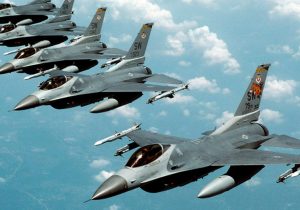Israeli Prime Minister Benjamin Netanyahu told Russian President Vladimir Putin that Israel was prepared to act unilaterally to prevent an expanded Iranian military presence in Syria, like reported by unionleader.com.
Russia intervened in the civil war on behalf of Syrian President Bashar al-Assad in 2015, joining a de facto alliance with Iranian forces, Lebanese Hezbollah and other Shi’ite Muslim militias helping Damascus beat back Islamic State and other Sunni Muslim insurgent groups.
Israel fears an eventual Assad victory could leave Iran with a permanent garrison in Syria, extending a threat posed from neighboring Lebanon by the Iranian-backed Hezbollah.
Meeting Putin in the Black Sea resort of Sochi, Netanyahu said Iran was fighting to cement an arc of influence from the Gulf to the Mediterranean.
“Iran is already well on its way to controlling Iraq, Yemen and to a large extent is already in practice in control of Lebanon,” Netanyahu told Putin.
“We cannot forget for a single minute that Iran threatens every day to annihilate Israel,” Netanyahu said. “Israel opposes Iran’s continued entrenchment in Syria. We will be sure to defend ourselves with all means against this and any threat.”
’Constructive role’
Putin, in the part of the meeting to which reporters had access, did not address Netanyahu’s remarks about Iran’s role in Syria nor his threat to take unilateral military action.
But at the United Nations, Russian U.N. Ambassador Vassily Nebenzia told reporters the de-escalation zones established in Syria, of which Iran is guarantor alongside Turkey and Russia, are “real progress on the way to end that tragic war.”
“We know the position of Israel towards Iran but we think that Iran in Syria is playing a very constructive role,” said Nebenzia.
Netanyahu advisers have privately said their focus is on keeping Iranian forces away from the Israeli-controlled Golan Heights, the Syrian side of which falls under a partial truce brokered by Russia and the United States in recent weeks.
In parallel to lobbying Moscow, Israel has been trying to persuade Washington that Iran and its guerrilla partners, not Islamic State, pose the greater common threat in the region.
“Bringing Shi’ites into the Sunni sphere will surely have many serious implications both in regard to refugees and to new terrorist acts,” Netanyahu told Israeli reporters after the three-hour meeting — his sixth with Putin since September 2015.
“We want to prevent a war and that’s why it’s better to raise the alarm early in order to stop deterioration.”
After the meeting, Netanyahu was due to fly back to Israel for talks with U.S. peace envoys Jared Kushner, Jason Greenblatt and Dina Powell, who are on a Middle East tour.



